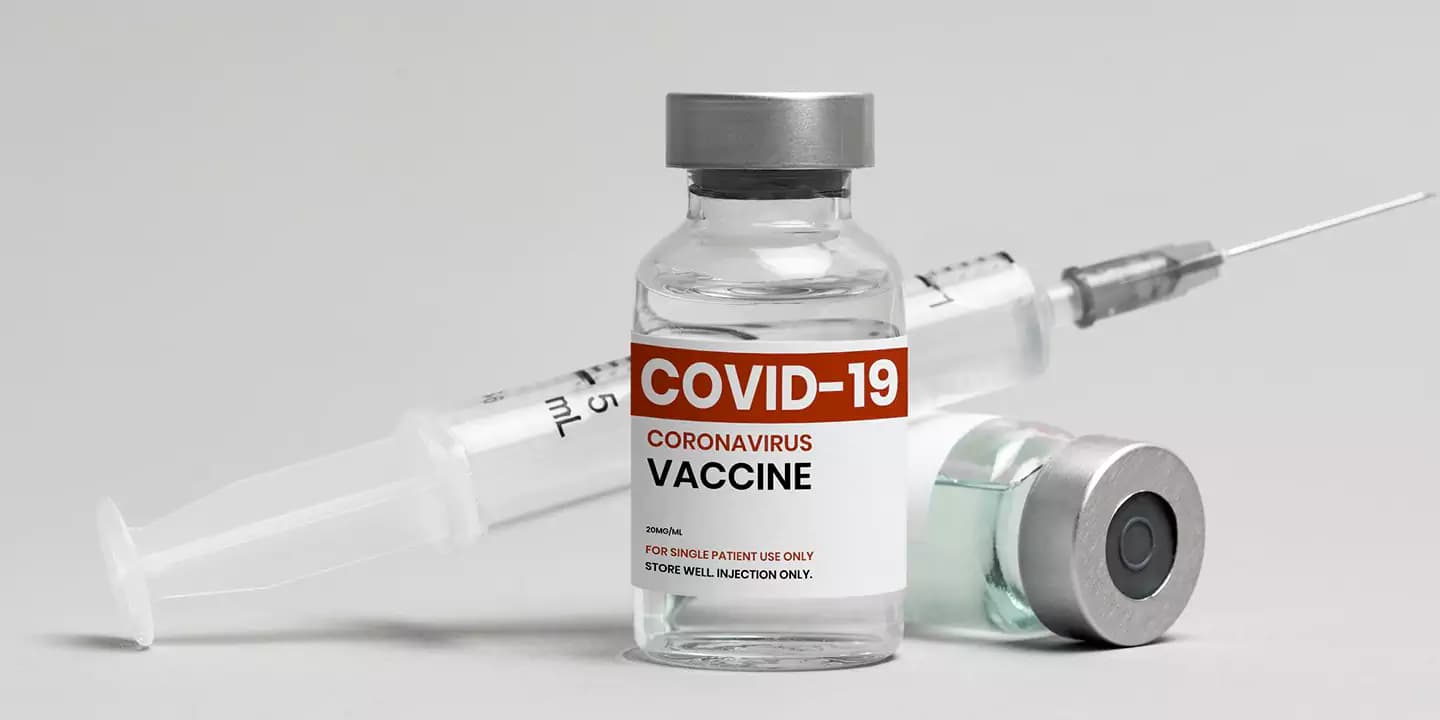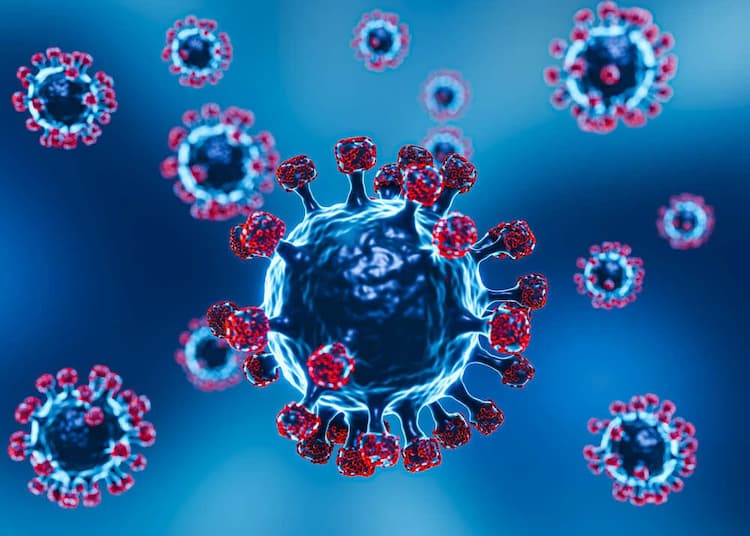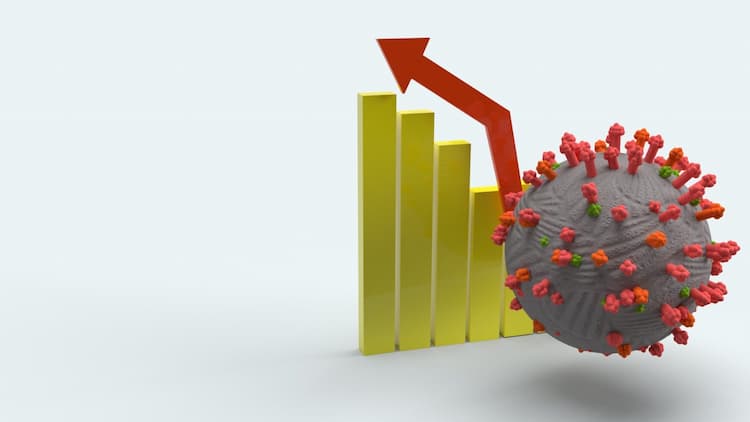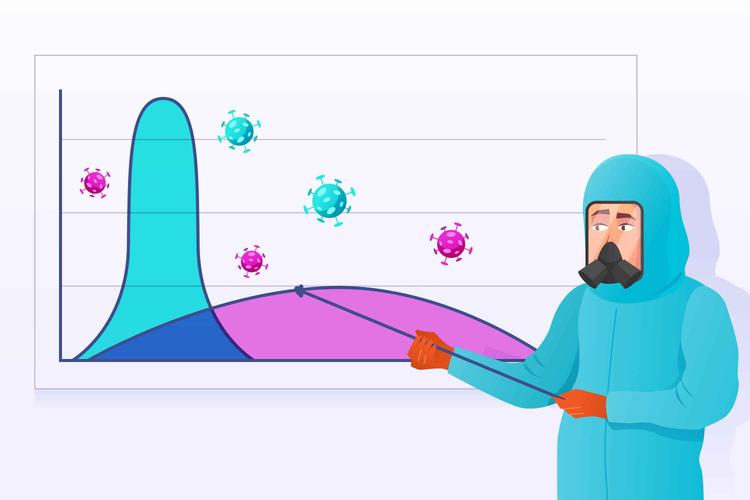Nasal Vaccine For Covid 19 - All You Need To Know About It

Medically Reviewed By
Dr. Ragiinii Sharma
Written By Prekshi Garg
on Jan 24, 2023
Last Edit Made By Prekshi Garg
on Mar 15, 2024

Vaccinations have undeniably transformed world health. Vaccines, arguably the single most life-saving breakthrough in medical history, have eradicated smallpox, reduced child mortality rates, and averted lifelong impairments. And when the disruptions and uncertainties caused by the COVID-19 epidemic disrupted the order of many people's lives, we returned to this idea.
According to mathematical modeling research, COVID vaccines lowered the possible worldwide death toll during the epidemic by about two-thirds in their first year, saving an estimated 19.8 million lives. They assessed that 15.5 million (78.2%) of those averted fatalities were due to direct vaccination effects. The rest were attributable to indirect vaccination effects such as decreased disease transmission and a lower load on healthcare systems.
World's First Intranasal Vaccine
According to the most recent vaccine news India is preparing to launch the first-of-its-kind intranasal COVID-19 vaccine by Bharat Biotech. The BBV154 or Incovacc intranasal vaccine from Bharat Biotech is the world's first intranasal vaccine to be approved as a booster dose for Covid-19.
The nasal vaccine is a pre-fusion stabilized spike protein recombinant replication-deficient adenovirus vectored vaccine. Because the vaccination is delivered by nasal spray, it eliminates the requirement for needles and syringes, which are currently necessary for all Covid-19 vaccines on the market. It will also lessen reliance on employees who have been trained to administer vaccinations. For omicron variants that reproduce in the upper respiratory tract before accessing the lungs, Incovacc is successful.
Let us continue reading to learn more about the first nasal vaccine, its availability, and other crucial details.
How Are Intranasal Vaccines Better Than Syringe Vaccines?
Because it closely reflects the natural manner of infections, intranasal vaccination is a feasible alternative to oral and intramuscular vaccination, and self-administration is simple, it may obtain a reasonable share in the coming years.
The fact that a nasal vaccine promotes both mucosal (protection at the site of infection) and systemic immunity is also a distinct advantage. Intramuscular vaccination, on the other hand, largely generates a systemic immune response (antibody formation). Intranasal vaccination may also provide protection against infections in other mucosal locations, such as the lungs, intestines, and genital tract, as well as cross-protection against variant strains via mucosal antibody production. Another significant benefit is that the nasal cavity is easily accessible.
The delivery of intranasal drops or sprays is non-invasive and provides no discomfort to patients. This is significant because many people are afraid of injections since they are associated with pain, disease transmission (HIV or hepatitis B), and the possibility of an allergic reaction.
Because less skilled individuals such as pharmacists or nurses can do mass vaccinations, intranasal delivery may be most suited for barrier immunizations following the breakout of highly infectious illnesses.
Special populations may benefit the most from intranasal vaccines:
- Children (simple to use, non-invasive)
- Patients who are elderly (easy to use, non-invasive)
- Patients afflicted with HIV (no fear for needle stick injuries)
- Patients with many medical conditions (fed up with injections)
What is iNCOVACC, Bharat Biotech Nasal Vaccine?
Bharat Biotech's iNCOVACC, the first approved vaccine in India is in the form of a nasal spray, has received DGCI approval for emergency use authorization and is now available on the CoWIN app. It can also be used as an adult booster. The nasal spray targets this region because the SARS-CoV-2 first infects the body through the nasal passages and generates a protective covering of antibodies. The Washington University School of Medicine created the dosage.
Bharat Biotech nasal vaccine is a replication-deficient chimp adenovirus SARS-CoV-2 vectored vaccination, according to the government's official news statement. It is made up of a replication-deficient ChAd vector that carries the stabilized Spike SARS-CoV-2 (Wuhan variant).
Under 'Mission Covid Suraksha,' India's Department of Biotechnology (DBT) and its PSU, Biotechnology Industry Research Assistance Council (BIRAC), are committed to developing a safe and effective vaccine from India for Covid-19. BBV154 Covid Vaccine is the first intranasal vaccine licensed by DCGI for primary vaccination against Covid-19 in the 18+ age group for restricted use in case of emergencies, and it adds to our repertory of Covid-19 vaccines. This nasal vaccine India brings to the world under the government of India's Atma Nirbharta project."
How Does the Intranasal Vaccine Work?
Intranasal (IN) vaccinations elicit a strong antibody-mediated immune response, as well as powerful cell-mediated immunity and protective mucosal immunity. The intranasal SARS-CoV-2 vaccination can inhibit virus infection, replication, shedding, and disease progression, as well as possibly limit virus transmission, by generating secretory IgA antibody responses exclusively in the nasal compartment.
IM vaccines are designed to elicit both antibody-mediated and T-cell-mediated immune responses. Nonetheless, it has been discovered that these nasal vaccine are ineffective at inducing IgA secretion in mucosal cells, which may be ineffective at regulating viral particle inflow in the upper respiratory tract. Intranasal Covid-19 immunization has shown encouraging preclinical outcomes in a variety of animal models.
Clinical studies in mouse models and rhesus macaques have produced a variety of IN vaccines, which have demonstrated activation of mucosal immunity (sIgA) in both the upper and lower respiratory tracts, as well as a significant level of humoral and cell-mediated immune responses that can inhibit viral reproduction and transmission/spread. The nasal vaccine India approved, is an intriguing strategy for avoiding Covid-19 since the nasal mucosa serves as the initial line of defense against SARS-CoV-2 entry before it spreads into the lungs. As a result, creating effective and dependable intranasal vaccinations is critical at this point.
Bharat Biotech nasal vaccine dubbed a "game-changer" for its potential role in preventing virus transmission rather than just disease severity, has been studied for safety and immunogenicity in phases 1 and 2 clinical studies, as well as an ongoing phase 3 clinical study, and has been found to be safe and immunogenic, according to data submitted to the Drug Controller General of India.
Because the vaccine is injected through the nose, where the virus enters humans, it has the potential to prevent infection as well as disrupt the transmission cycle.
Who Can Take The Intranasal Vaccine?
The government has made it clear that the current approval is only for this vaccine to be administered as a prophylactic or a booster dosage in persons over the age of 18. Those who have already taken one do not need to take this one. This vaccine from India is now available through the CoWin platform, must be stored at a temperature between two and eight degrees Celsius, which is the standard refrigerator temperature, and must be used within six hours after being opened and removed from the refrigerator.
However, we do not yet know how effective this nasal vaccine is. Other boosters are already available, but because the nasal spray immediately targets the upper respiratory tract, it can be a viable choice. The government has recommended all people, particularly vulnerable populations, to obtain coronavirus preventive doses, amid fears of a new wave of COVID-19 in the country, as neighboring China, which just eliminated all coronavirus-related restrictions, is seeing a significant rise in infections.
How Much will the Nasal Vaccine Cost?
iNCOVACC is the world's first intranasal vaccination for Covid-19 to be approved for both the primary two-dose schedule and a heterogeneous booster dose.
A single dosage of Bharat Biotech nasal vaccine iNCOVACC, the intranasal vaccine from Bharat Biotech that was licensed as part of the Covid-19 pandemic immunization program recently, costs Rs 800, excluding the Goods and Services Tax for private institutions. Given that private hospitals can charge up to Rs 150 as an administrative fee for each dose of the COVID-19 vaccine, one dose of this vaccine produced on a technology licensed by Washington University in St Louis could cost around Rs 1,000 per user.
The approved vaccine in India will be available to the public by the fourth week of January.
Incovacc will be marketed at a price of Rs 325 per dosage for mass procurement of the vaccine by the Centre and the state.
What Is The Current Status of the Intranasal Vaccine?
As per the current India vaccination news, the intranasal vaccine, which has previously been approved as a booster shot for those who have been fully vaccinated with Covaxin or Covishield, as well as a primary vaccine for a full two-dose course against COVID-19, is expected to be available at private vaccination centers by the end of January.
Currently, the government has no plans to buy iNCOVACC for immunization at government hospitals, which are free of charge to eligible beneficiaries.
Currently, government hospitals administer Covishield and Covaxin as a booster or precautionary dosage to anyone over the age of 60 who has completed their initial immunization schedule at least 6 months prior.
Those aged 18 to 59, on the other hand, are only eligible for booster doses in private hospitals at predetermined prices.
Meanwhile, private hospitals anticipate an increase in demand for booster doses, particularly the intranasal vaccine, as a result of the COVID-19 scenario in China.
However, considering that India's COVID-19 condition is steady, booster adoption may remain low if the intranasal vaccination is prohibitively expensive.
So far, according to the current India vaccination news, less than 30% of individuals eligible for preventive doses have received it nationwide. Specialists recommend that those aged 60 and over, people with numerous comorbidities, and those who are immunocompromised get a booster dose of the COVID-19 vaccine.
What Are The Side Effects Of Intranasal Vaccination?
A controlled clinical investigation in people aged 18 and up proved the safety of Bharat Biotech nasal vaccine iNCOVACC®.It has been tested for safety and immunogenicity in phase 1 and 2 clinical trials, as well as an ongoing phase 3 clinical trial, and has been proven to be safe.
However, the following adverse events were documented during the clinical trial with heterologous booster dose:
Common Side Effects
- Fatigue
- Fever
- Headache
- Nasal Congestion
Uncommon Side Effects
- Joint discomfort
- Weakness
- Cough
- Cold
- Itching in the eyes
- Redness in the eyes
- Breathlessness
- Nasal Ache
- Sneezing
What Are The Precautions For Using An Intranasal Vaccine?
- Intranasal vaccination should not be given intravenously, subcutaneously, intramuscularly, or intradermally.
- Similar to all other vaccines, after-vaccination anaphylactic responses should always be managed under supervision with the proper medical care. After receiving a vaccination, patients should stay under medical observation for at least 30 minutes.
- In the same way as with other vaccines, intranasal vaccination should be delayed in cases of acute severe febrile sickness or acute infection.
- People who have thrombocytopenia, coagulation disorders, or who are receiving anticoagulant therapy should use caution while administering intranasal vaccines.
- Immunocompromised individuals: It is unknown if immunocompetent individuals will respond to the vaccine regimen in the same way as immunocompromised individuals with decreased immunological responsiveness, including those undergoing immunosuppressive medication. Immunological responses to the vaccine may be substantially less in people with immune impairment.
How To Book Covid Nasal Vaccine Online
The nasal vaccine from India, iNCOVACC by Bharat Biotech is accessible in private hospitals. People are recommended, however, to schedule appointments for the immunization before going directly to hospitals. Here's how to arrange an appointment for the Covid nasal vaccine online, step by step.
Step 1: Navigate to the CoWIN official website at cowin.gov.in/.
Step 2: Sign in by using your registered mobile number (RMN).
Step 3: Enter the OTP to confirm.
Step 4- After logging in, go to your immunization status and select the available booster dose. Notably, a second dose of the Covid vaccination is required first. Then you'll only be able to get a shot of the booster dose. A booster dose of Covid vaccination can also be given after 9 months of receiving the initial two doses.
Step 5: Look out for your nearest vaccination center by Pincode or district name.
Step 6: Select the Center of your choice.
Step 7: Choose your preferred date and time for the nasal vaccine booster shot.
Step 8: Confirm your reservation. For future purposes save the vaccination certificate after downloading it.
Frequently Asked Questions
1. Why does creating a vaccine take so long?
The process of creating a vaccine is protracted and intricate. Vaccines are administered to healthy people as well as vulnerable populations like children, pregnant women, and the elderly, unlike medications that are given to persons who are ill. So, rigorous exams are required. The shortest period recorded in history for the development of a vaccine is five years, but it typically takes twice that long or even more.
2. Can I take the nasal vaccine from Bharat biotech if I am allergic?
It is not recommended to immunize those with known severe allergies to any ingredient in the iNCOVACC® vaccine. Even those with a history of severe allergic reactions unrelated to vaccinations or injectable drugs—such as sensitivities to latex, food, pet dander, venom, or the environment—may nevertheless receive vaccinations. People who have a history of oral medicine allergies, a family history of allergic reactions, or who may have a slight vaccine allergy (but not anaphylaxis) are nevertheless able to receive vaccinations.
3. Can I take a vaccine if my immunity is compromised?
There is currently No evidence available to establish the safety and effectiveness of vaccines in these categories. A complete immunological response to COVID-19 may not be produced by immunosuppressed people. The effectiveness and safety profile of the vaccine for transplant patients should be explained to them. Compared to the normal population, transplant recipients could have a weaker immune system. They should be informed of the significance of adhering to all current advice in order to protect themselves even after immunization. If there are no medical reasons why an immunocompromised person shouldn't have the COVID-19 vaccine, they can.
4. What things should I tell my vaccination provider before getting the new intranasal vaccine?
All of your medical issues should be disclosed to the vaccinator or officer overseeing your immunization, especially if you:
- Are taking regular medication for what disease, for how long, and on what schedule?
- You have allergies
- Are frequently feverish
- Have a bleeding or coagulation condition or are using a blood thinner
- Are taking a medication that affects your immune system or has weakened immunity
- You are expecting
- Received a second COVID-19 vaccination
Conclusion
In recent upgrades done to technology, vaccine news India has approved Bharat Biotech's iNCOVACC intranasal vaccination for anyone aged 18 and up. It can be given as a precaution to people who have already taken two doses of Covaxin or Covishield. For any COVID related vaccine and test you can always contact Redcliffe Labs to get your tests done fast and on a budget.
The needle-free vaccination is offered in private hospitals, and appointments for nasal immunizations can be made using the CoWIN platform. From December 23, 2022, people can arrange appointments for Covid nasal booster doses online through the CoWIN website and app. In private hospitals, the iNCOVACC nasal vaccine would cost Rs 800, excluding the 5% Goods and Services Tax (GST).


